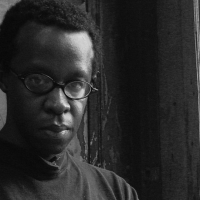by Tom Johnson
Jazz has been in a kind of holding pattern since the mid-1970s, when even Miles Davis declared the genre dead.
Many exciting artists have arrived since then and have begun pushing boundaries and incorporating new sounds, but unfortunately what remains noticeable of jazz recently is relegated to the soulless flaggelating of adult-contemporary pablum like Kenny G. This subset of “jazz” (it’s not, but I have to use that title because that’s what people try to call it) is easily recognizable by its complete and utter lack of drive, being a music that is content to simply fold itself into the background as if all of life was one big grocery store where you don’t want something you really pay attention to or enjoy more than you want something to fill the silence.
Kenny G, John Tesh, and many others are very good at filling that vacuum, but so is the humming of a refrigerator or the chatter of a talk-show. This illustrates a fundamental problem with music today: people don’t really listen anymore. People don’t want to be challenged or intrigued by music anymore.
It’s partly due to today’s fast-paced lifestyle, as people simply don’t take the time to do so and therefore have forgotten that things like music are supposed to reward the listener. Much of today’s music is perfectly happy being your background or hold music at work, just something to fill the space in between the clacking of someone’s keyboard or the ruffling of packages at the supermarket.
Fortunately for those of us who care, there are some musicians out there who continue to forge ahead, out of the spotlight. Guitarist Bill Frisell is one of these people, starting out as a true jazz guitarist and later incorporating the twang of bluegrass and country into his sound, making his contributions to modern jazz not only some of the most intriguing but some of the most beautiful music around. Pianist Matthew Shipp is another such artist, who began as a sideman for the likes of free-jazz saxophonist David S. Ware and branched off as a solo artist in his own right.
2003 brought a perplexing new release from him in the form of Nu Bop, an album aimed at taking that next step beyond the well-worn (but comfortable) hard-bop style most people associate with true jazz. I knew that at some point this was going to happen — I dreaded it, really — the assimilating of hip-hop into true jazz. I’m sure others have attempted this at some point, but whoever they may be it never took and fell back into obscurity.
The problem with hip-hop is that its more about attitude than musical aptitude. Previous attempts at modernizing and blending jazz and hip-hop have failed because the performers simply lifted the sounds and the beats, trying to play that bop saxophone over the top of a sampled rhythm and more often than not simply sounding like a parody of the intended outcome. In a way, what Miles Davis did in the ’70s, the wandering, meandering, but often fierce and passionate free-association jazz that many afficianados decried as the death of the genre, is the closest thing to hip-hop jazz that we would see for decades.
Luckily, Matthew Shipp has been paying attention, and while he incorporates the muted beats of the often melody-less and formless hip-hop of today, he has more importantly lifted the street-wise attitude and successfully transplanted it onto his own forward-thinking piano playing. Lest you think I am speaking of piano-bar type playing, let me clear this up: Matthew Shipp’s playing is to piano what Jackson Pollock was to painting: That is to say, he applies little splashes here and there, but what is applied is meaningful and educated.
The end result is a transition from point a to point z, as opposed to hip-hop’s “point-a to nowhere and back to point-a again” aimlessness.
This, certainly, is not for everyone. Music on the cutting edge often has rough edges, and there are rough edges a-plenty, which is what gives Nu Bop such bite. This is an album I can see clawing its way into more and more hands, something that in 20 years will have been one of the forebearers of whatever jazz has become then.
[amazon_enhanced asin=”B00005UWLE” container=”” container_class=”” price=”All” background_color=”FFFFFF” link_color=”000000″ text_color=”0000FF” /] [amazon_enhanced asin=”B004GHYCHA” container=”” container_class=”” price=”All” background_color=”FFFFFF” link_color=”000000″ text_color=”0000FF” /] [amazon_enhanced asin=”B002C7489S” container=”” container_class=”” price=”All” background_color=”FFFFFF” link_color=”000000″ text_color=”0000FF” /] [amazon_enhanced asin=”B002S1XP56″ container=”” container_class=”” price=”All” background_color=”FFFFFF” link_color=”000000″ text_color=”0000FF” /] [amazon_enhanced asin=”B002ZXMZLW” container=”” container_class=”” price=”All” background_color=”FFFFFF” link_color=”000000″ text_color=”0000FF” /]
- How David Bowie’s ‘Reality’ Stood Out For What It Was Not - September 29, 2023
- Metallica’s ‘St. Anger’ Was Always Much Better Than They Said - June 8, 2023
- How King Crimson Defined an Unsettled Post-9/11 Landscape on ‘Power to Believe’ - March 5, 2023



